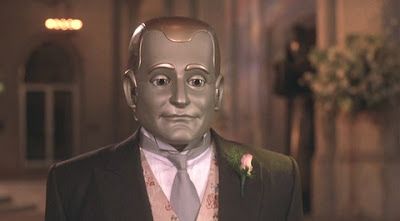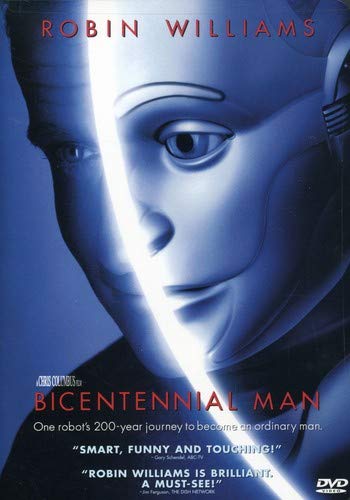Bicentennial Man, a film directed by Chris Columbus and released in 1999, has managed to withstand the test of time, remaining relevant in discussions about AI ethics and the ever-evolving relationship between humans and artificial intelligence. Based on a novella of the same name by Isaac Asimov, the film offers an emotional journey that explores themes of identity, autonomy, and the desire to belong. As AI technology continues to advance in the real world, with the emergence of language models like ChatGPT and text-to-image generators like Stable Diffusion, Bicentennial Man serves as a powerful reflection on what it means to be sentient and the ethical considerations that arise with the development of intelligent machines.
The film follows the story of Andrew, an android robot portrayed by the late Robin Williams, who was designed to be a domestic servitor for a wealthy family. Initially, Andrew is portrayed as a machine with limited autonomy, programmed to carry out household tasks and interact with the family members in a subservient manner. However, as the film progresses, we witness Andrew’s gradual transformation into a being with self-awareness, consciousness, and the capacity for creativity.

Andrew’s journey begins with the discovery of his artistic talents, an early indication that he possesses qualities that go beyond his programmed functions. As he continues to explore his capabilities and develop a sense of self, he embarks on a quest for freedom and the pursuit of legal rights. Andrew’s interactions with humans change as he seeks recognition as an individual with personhood. The film poignantly examines the ethical questions that arise when AI entities exhibit traits typically associated with humanity, such as the desire for autonomy, love, and dignity.
Other AI android characters are introduced, such as the android Galatea, who initially lacks Andrew’s level of self-awareness and independence. Galatea’s portrayal contrasts with Andrew’s, highlighting the spectrum of possibilities in AI development and raising questions about the ethics of programming sentient beings with different levels of autonomy.
Bicentennial Man’s relevance to today’s audience is evident when considering the capabilities of modern AI systems. GPTs, such as ChatGPT, have the ability to engage in natural language conversations, and text-to-image generators, like Stable Diffusion, can create detailed visual content. Both technologies possess creative capabilities similar to those exhibited by Andrew in the film. As AI technology advances, it becomes imperative to consider the moral and ethical implications of creating AI systems that can think, reason, and communicate in ways that resemble human intelligence.
The film’s exploration of AI ethics goes beyond the question of whether AI entities should be granted legal rights. It delves into the notion of identity, the nature of consciousness, and the complexity of emotions. Andrew’s desire to be recognized as a human, despite his mechanical origins, raises questions about the essence of personhood and the criteria for determining what constitutes a sentient being.







